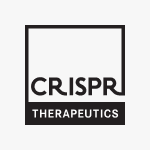CRISPR Therapeutics Q4 2023 Earnings Report
Key Takeaways
CRISPR Therapeutics reported a net income of $89.3 million for Q4 2023, a significant turnaround from the net loss of $110.6 million in Q4 2022. The company's cash position remains strong, with over $2.1 billion in pro-forma cash, cash equivalents, and marketable securities as of February 21, 2024, bolstered by a registered direct offering and milestone payments. The company continues to advance its pipeline, including CASGEVY™ and next-generation CAR T cell programs.
CASGEVY™ received approvals in the U.S., European Union, Great Britain, the Kingdom of Saudi Arabia, and Bahrain.
Clinical trials are ongoing for next-generation CAR T product candidates, CTX112™ and CTX131™.
Clinical trials are ongoing for in vivo gene editing product candidates, CTX310™ and CTX320™.
The company's balance sheet was strengthened with a $280 million registered direct offering, bringing the current cash position to over $2.1 billion.
Forward Guidance
CRISPR Therapeutics is focused on advancing its pipeline and clinical trials across various therapeutic areas, including oncology, autoimmune, cardiovascular, and diabetes, with expectations for a catalyst-rich period in the next 12-18 months.
Positive Outlook
- Initiate a clinical trial of CTX112 in systemic lupus erythematosus (SLE) in the first half of 2024.
- Initiate a Phase 1 trial of CTX131 in hematologic malignancies, including T- and B-cell malignancies, in the first half of 2024.
- Provide a clinical update in 2024 for next-generation CAR T candidates.
- Expect to nominate additional in vivo programs targeting both rare and common diseases in mid-2024.
- Continue to advance a Phase 1 clinical trial for CTX211 for the treatment of Type 1 Diabetes (T1D).
Challenges Ahead
- Efficacy and safety results from ongoing clinical trials may not continue or be repeated in ongoing or planned clinical trials or may not support regulatory submissions.
- Regulatory authorities may not approve exa-cel on a timely basis or at all.
Historical Earnings Impact
Analyze how earnings announcements historically affect stock price performance
